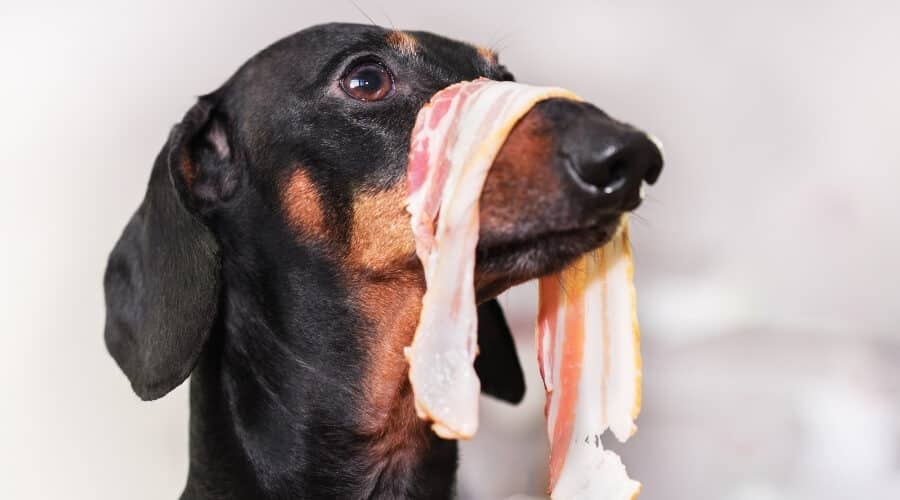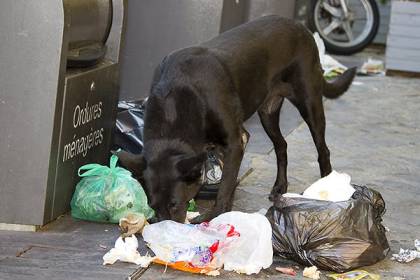Dogs are curious by nature, and they enjoy chasing prey animals, including lizards. In fact, dogs eating a lizard is a common problem! Can this be bad for your dog?
Connect with a verified veterinarian in minutes. Licensed vets are available 24/7 to answer your questions. No need to worry about your furry family member.
Dog Lizard Bites & Ingestion
Common lizards found throughout North America and other parts of the world are usually not poisonous. However, poisonous lizards do exist in South and Central America, Australia and other places. If your dog eats a poisonous lizard or is bitten by one, then he could become sick.
Having said that, even common lizards can make your fur baby sick if he eats one. The most common problem is Salmonella, which usually isn’t a health issue for dogs that are healthy.
If your fur baby has eaten a lizard, it’s necessary to monitor his health and condition over the next few hours. You’ll want to see if your dog develops stomach issues, diarrhea, vomiting, or other signs that show he’s not feeling well. If your dog does show any symptoms, it’s best to call the vet right away.
Symptoms of Lizard Poisoning in Dogs
If your pup has eaten (or was bitten) a poisonous lizard, he may show some of the following signs and symptoms:
- Bleeding (at the site of the bite)
- Vomiting
- Pain
- Bruising and swelling
- Rapid breathing or difficulty breathing
- Excessive urination and/or defecation
- Lacrimation (excessive tearing)
- Excessive salivation
- Low blood pressure
- Irregular heartbeat
If your dog is showing any of these signs or symptoms, it’s best to call the vet right way. This can be a medical emergency.

Review symptoms, medications & behavior to keep your pets healthy with a Vet Online in just minutes.
Ask a Vet Live NowSigns & Symptoms of Salmonella in Dogs
Your fur baby can come down with an infection from Salmonella; the signs and symptoms can include:
- Shock
- Lethargy
- Fever
- Diarrhea
- Vomiting
- Lack of appetite
- Weight loss
- Dehydration
- Skin problems
- Mucus in stool
- Unusually fast heart rate
- Swollen lymph nodes
- Abnormal vaginal discharge
- Miscarriage
Depending on your dog’s health and age, the infection may only be mild, or it could be severe.
In addition to being toxic or causing Salmonella infection, a lizard may also cause a bowel obstruction, depending on how large the lizard was and the length of its tail.
It’s possible that a lizard could bite the inside of your dog’s mouth, which could lead to a bacterial infection. So, if your dog has eaten a lizard, be sure to check the inside of his mouth for any signs of injury and watch for infections.
Treatment After Dog Swallows a Lizard
Treatment will depend on whether or not the lizard was poisonous, etc. If the lizard was poisonous, your vet may run lab tests to see if your pup’s organs have been affected. The vet may give your dog supplemental oxygen, an antidote (if one exists for the specific type of lizard), etc. Support may also involve IV fluids and any other treatments that will help your dog. If your dog’s in serious condition, the vet may need to keep your fur baby hospitalized until he’s stabilized.
Treatment of a salmonella infection will depend on how serious your pup’s symptoms are. The vet may treat your fur baby with support measures such as IV fluids, antibiotics and other medications if needed.
How to Prevent Your Dog from Eating Lizards?
If your dog has a habit of trying to eat lizards, it’s best to take the following steps to keep him from eating them!
- Be sure to watch for lizards on your patio or porch and remove them before your fur baby sees them. By removing them, we mean removing the lizard safely, so he doesn’t suffer any harm.
- If you and your dog are playing outside and he finds a lizard, call your dog away from the critter.
- When you’re out for a walk, it’s best to keep your dog on a leash. If your dog tries to pull you to see a lizard, keep the leash tight. Make sure your fur baby stays near you rather than heading over to the reptile.
- Teach your dog the “drop it” or “leave it” command.
- Make sure your dog is taking preventative medication for parasites.
- It’s best to research the lizards in your area and see if they are venomous or not.
Eating a lizard may not cause your dog any problems; however, if he shows any of the signs and symptoms above, or you have any concerns about your fur baby, call the vet immediately.
Connect with a verified veterinarian in minutes. Licensed vets are available 24/7 to answer your questions. No need to worry about your furry family member.

Julie
Julie is a graduate of the University of North Carolina, Wilmington, where she studied Animal science. Though contrary to the opinion of her parents she was meant to study pharmacy, but she was in love with animals especially cats. Julie currently works in an animal research institute (NGO) in California and loves spending quality time with her little cat. She has the passion for making research about animals, how they survive, their way of life among others and publishes it. Julie is also happily married with two kids.
Review symptoms, medications & behavior to keep your pets healthy with a Vet Online in just minutes.
Ask a Vet Live Now




